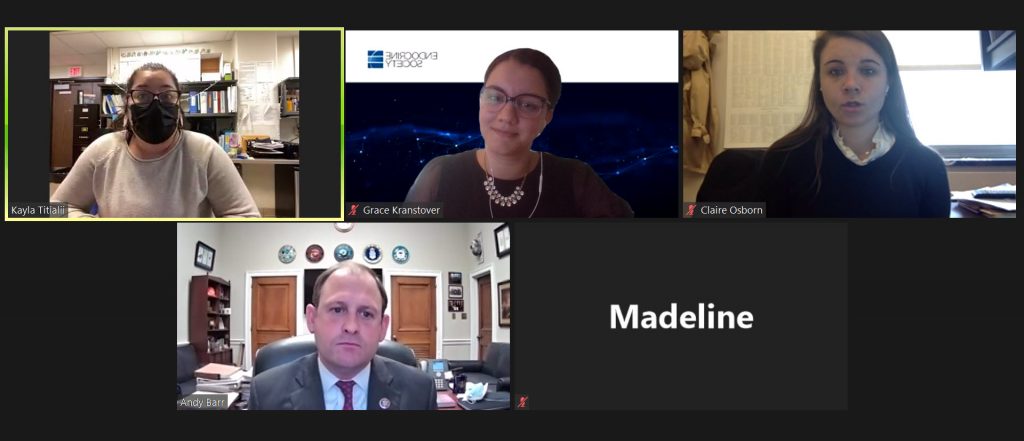On March 16, the Endocrine Society conducted a “virtual” Research Hill Day where Endocrine Society members from across the U.S. met with their congressional representatives and their staff through Zoom, Skype, conference lines, and other electronic meeting platforms while the Capitol complex is closed for the pandemic and security reasons.
During these meetings, Endocrine Society members urged Congress to provide an increase of $3.2 billion for the National Institutes of Health (NIH) in fiscal year (FY) 2022, resulting in a total of $46.1 billion. Members discussed the importance of steady sustained increased funding for NIH, and the positive impact federal funding has on research discoveries in their own districts and states.
Society members also advocated for an additional $10 billion in supplemental emergency research funding for the NIH to support new COVID-19 research priorities and to assist researchers whose labs and work were impacted by the pandemic. COVID-19 has forced laboratory and institutional closures that have complicated or prevented research from continuing during the pandemic. As labs have reopened, additional costs and other barriers have further stretched grant budgets. Supplemental funds are still needed to restart research programs, support early-stage investigators who have lost valuable training opportunities due to the pandemic, provide support so critical research staff can be retained, and address increasing research costs. Endocrine Society members were able to give first-hand accounts of the effects the pandemic has had on their own research and directly make the case for additional emergency support.

In addition to our funding requests for the NIH, we talked with congressional offices about the value of endocrine research and asked them to include language in the accompanying report to the final appropriations bill encouraging cross-NIH collaboration to support research that studies how sex as a biological variable (SABV) impacts short and long-term outcomes of COVID-19. We developed this language to call attention to research showing that sex and gender differences can affect the severity and duration of disease due to SARS-CoV-19 infection and to encourage current and future studies to take these differences into account.
Endocrine Society members were able to give first-hand accounts of the effects the pandemic has had on their own research and directly make the case for additional emergency support.
Recently, the Endocrine Society co-hosted a congressional briefing with the Society for Women’s Health Research on the NIH’s SABV policy “Women’s Health Research: Understanding the Roles of Sex and Gender” (recording available at https://bit.ly/3saaleR) to commemorate the five-year anniversary of the NIH’s policy requiring investigators to account for SABV in research studies and to identify further questions on how exactly biological sex and gender influence COVID-19 outcomes.
As Congress continues to deliberate on FY2022 appropriations, we will continue to engage with lawmakers to advocate for research funding and the value of endocrine research. Endocrine Society members who were unable to participate in our virtual Hill Day, but still want to support research funding can do so by joining our online campaign at endocrine.org/takeaction. Our software will provide you with an email message that you can personalize and will direct the message to your representative and senators’ offices.


